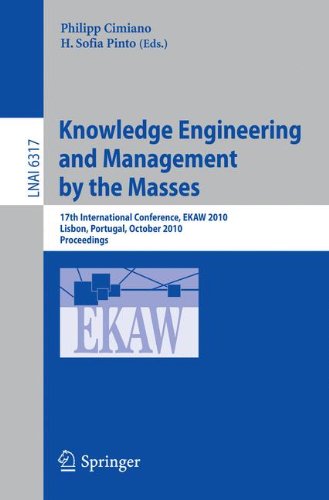

Most ebook files are in PDF format, so you can easily read them using various software such as Foxit Reader or directly on the Google Chrome browser.
Some ebook files are released by publishers in other formats such as .awz, .mobi, .epub, .fb2, etc. You may need to install specific software to read these formats on mobile/PC, such as Calibre.
Please read the tutorial at this link: https://ebookbell.com/faq
We offer FREE conversion to the popular formats you request; however, this may take some time. Therefore, right after payment, please email us, and we will try to provide the service as quickly as possible.
For some exceptional file formats or broken links (if any), please refrain from opening any disputes. Instead, email us first, and we will try to assist within a maximum of 6 hours.
EbookBell Team

0.0
0 reviewsKnowledge Management and Knowledge Engineering is a fascinating ?eld of re- 1 search these days. In the beginning of EKAW , the modeling and acquisition of knowledge was the privilege of – or rather a burden for – a few knowledge engineers familiar with knowledge engineering paradigms and knowledge rep- sentationformalisms.While the aimhasalwaysbeentomodelknowledgedecl- atively and allow for reusability, the knowledge models produced in these early days were typically used in single and very speci?c applications and rarely - changed. Moreover, these models were typically rather complex, and they could be understood only by a few expert knowledge engineers. This situation has changed radically in the last few years as clearly indicated by the following trends: – The creation of (even formal) knowledge is now becoming more and more collaborative. Collaborative ontology engineering tools and social software platforms show the potential to leverage the wisdom of the crowds (or at least of “the many”) to lead to broader consensus and thus produce shared models which qualify better for reuse. – A trend can also be observed towards developing and publishing small but 2 3 4 high-impactvocabularies(e.g.,FOAF ,DublinCore ,GoodRelations)rather than complex and large knowledge models.